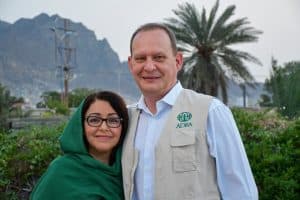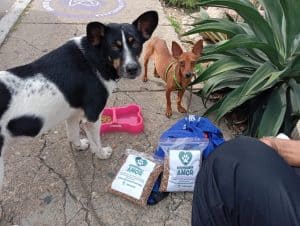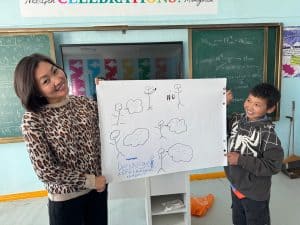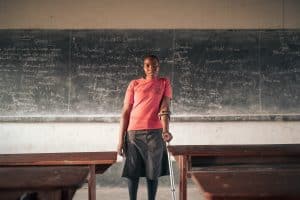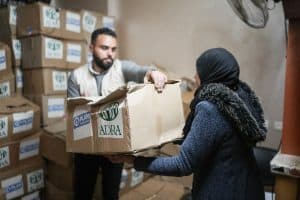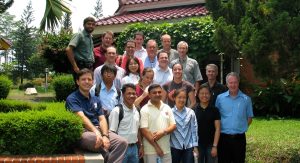Every year on World Mental Health Day, the global community shines a light on the urgent need for accessible mental health care—especially in crises and emergencies, when stress, uncertainty, and loss take their greatest toll.
While not all young people live through conflict or disaster, many face invisible crises of their own—loneliness, pressure, and anxiety that can quietly erode their well-being. In Mongolia, ADRA’s NextGen CELEBRATIONS! project is helping adolescents build resilience and emotional strength long before emergencies arise, empowering them with tools that protect both body and mind.
Supporting Adolescent Mental Health in Mongolia
Worldwide, 1 in 7 children and adolescents aged 10–19 experience a mental health condition. Yet many never receive the care they need due to barriers such as limited services, high costs, or stigma. Anxiety, depression, and behavioral disorders are among the most common challenges, and globally, suicide is the third leading cause of death among 15–20-year-olds. Half of all mental health conditions begin before the age of 18, according to the World Health Organization.
These statistics underscore the urgency of early prevention and access to care—two goals at the heart of ADRA’s NextGen CELEBRATIONS! Mongolia project, a dynamic three-year initiative that serves as a pilot of ADRA International’s global non-communicable disease (NCD) prevention approach. Non-communicable diseases include long-lasting conditions such as cardiovascular disease, diabetes, cancers, and mental health disorders.
A Health Club That Changes Lives
The mission of NextGen CELEBRATIONS! is clear: to empower Mongolian adolescents, aged 12–15, with the knowledge and tools to lead healthy lives and prevent NCDs in their communities. Through school-based Health Clubs, students learn about nutrition, exercise, emotional wellness, and healthy decision-making in fun, interactive ways.
So far, the project has reached 1,077 participants, including parents. Each Health Club fosters an atmosphere of trust and learning where students gain practical skills for well-being—like stress management, journaling, and communication.
“Adolescence is a critical window for shaping how the brain and body respond to stress,” says Weanne Estrada, Mental Health Specialist for ADRA International. “When adolescents learn to manage stress and regulate their emotions, they are literally rewiring their brains to respond more adaptively under pressure. In essence, we are building their psychological infrastructure now so they can withstand future crises and emergencies with greater resilience.”
That foundation of emotional strength also leads to stronger communities.
“We have observed that adolescents have experienced a noticeable increase in social connection after engaging in the NextGen Health Club activities,” explains Orgilzul Batsukh, NextGen CELEBRATIONS!Project Manager in Mongolia. “The programs emphasize community and shared goals, which naturally foster interaction and collaboration. Among our adolescents, this has led to strong peer relationships and a reduced sense of isolation. The social bonding that occurs through these activities helps create a sense of belonging, which is a critical component of mental well-being.”
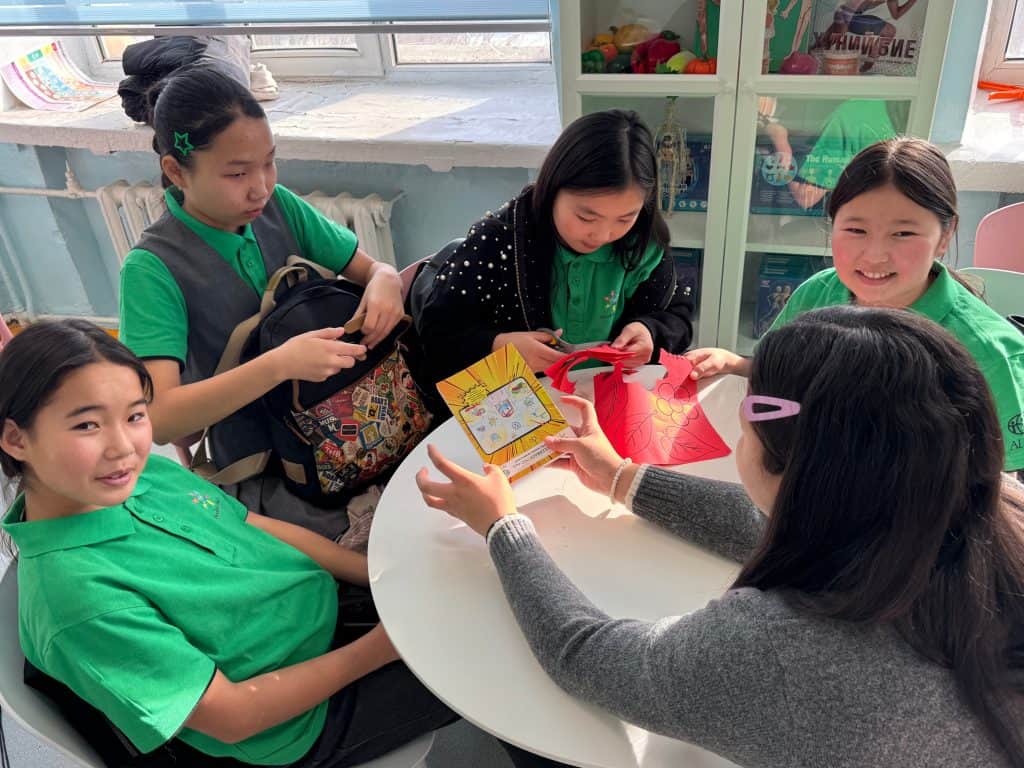
Learning to Share and Support
M. Bilguuntuguldur, a sixth-grade student from Tusgal School, is one of the project’s enthusiastic participants.
“Since joining the club, I’ve started eating healthier foods, drinking more water, and I even encouraged my older brother to quit vaping,” he says.
One of his favorite memories was hiking with classmates during the winter—an activity that strengthened friendships and lifted his mood. He recalls struggling with anxiety in the past, often lying awake worrying about the next day. Through the club, he learned the value of nightly journaling, which now helps him sleep peacefully and manage his thoughts.
“I’ve also started talking more openly with my siblings,” he adds. “Sharing what I feel makes me calmer. The club helped me understand that it’s okay to talk about what’s on your mind.”
That openness is spreading beyond the classroom. A parent shared:
“I have seen positive things in my child. For example, through the ‘Let’s Share Our Feelings’ campaign, I learned how my daughter feels about me, and I had the chance to tell her how important she is to me.”
Mental Health Month: Building Emotional Resilience
From January to February 2025, NextGen CELEBRATIONS! organized Mental Health Month across participating schools, fostering emotional resilience and promoting positive mental well-being among adolescents.
Over four weeks, students explored themes of gratitude, self-awareness, and optimism through hands-on sessions such as:
- Film-based discussions on “Emotions of Inside Out”
- Gratitude Tree and grounding exercises
- Compliments and happiness workshops
- Positive affirmation and mirroring sessions
Each activity encouraged students to express emotions, reflect through daily journaling, and communicate openly with peers and family. Creative materials such as stickers, bookmarks, and felt gratitude trees reinforced these habits and made learning fun.
To widen participation, club members invited friends to join—introducing the idea of peer support as a foundation of emotional health. A total of 14 Health Club sessions were conducted during this month, each designed to help youth share their feelings safely and confidently under the campaign slogan: “Share your feelings.”
“We also observed that students became better at understanding how to manage their emotions,” adds Batsukh. “When they can handle their feelings, they treat others with more respect, even if their classmates have different personalities or moods. This helps them get along better and avoid misunderstandings.”
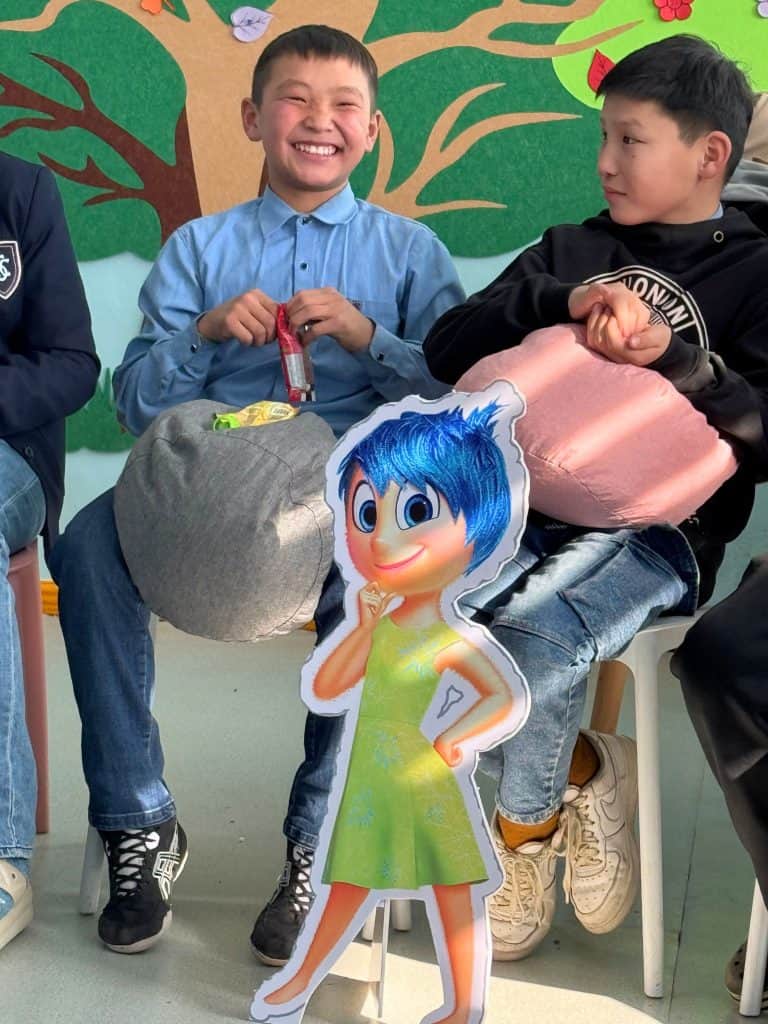
Connecting to a Global Call
This year’s World Mental Health Day highlights mental health in catastrophes and emergencies, reminding the world that support systems must remain accessible when people face their hardest moments.
Although Mongolia’s youth are not living through war or displacement, their mental well-being is just as vital. By fostering safe spaces, encouraging open dialogue, and teaching coping tools such as journaling, NextGen CELEBRATIONS! equips students with resilience that can sustain them through life’s challenges—whether personal or global.
Hope for the Future
As ADRA looks ahead to introducing the CELEBRATIONS! approach globally, the Mongolia pilot stands as a model for how schools and communities can nurture both physical and mental well-being.
On World Mental Health Day, ADRA celebrates young people like Bilguuntuguldur—students who are learning that caring for their minds is as important as caring for their bodies. Their stories remind us that the strongest defense in times of crisis begins with resilient minds and compassionate communities.

